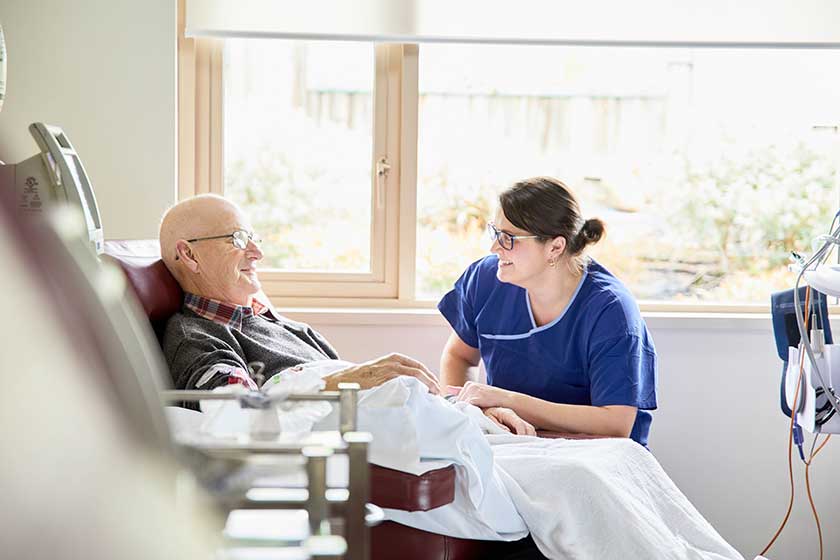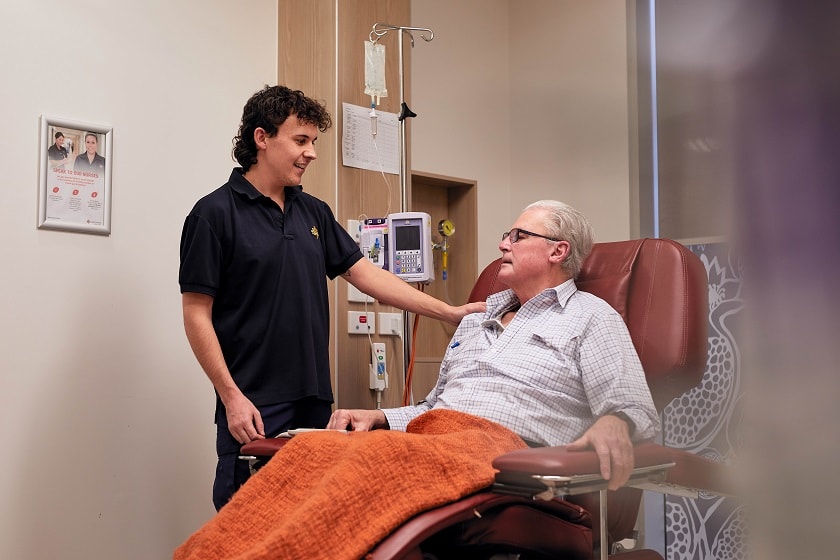Bowel cancer occurs anywhere in the bowel and depending on where it starts it may be called colon or rectal cancer.
The overall cure rate for bowel cancer is 70 per cent, and the good news is that recurrence rates of bowel cancer are much lower than they used to be due to advanced surgical techniques, combined with the use of chemotherapy and radiotherapy.
The period from diagnosis to recovery can be stressful and lengthy, but the long term goals of treatment is cure, followed by symptom control.
We are much better at surgery these days and in the case of rectal cancer, preoperative radiotherapy gives patients an even better chance of being cured.
How is bowel cancer surgery performed?
Most bowel cancer surgery performed is laparoscopic surgery, also known as keyhole surgery, in which surgery is performed using instruments and a camera through a few small incisions.
There are short term advantages to having laparoscopic surgery, including smaller wounds, reduced post operative pain, fewer heart and lung complications, and a speedier return to normal function.
As a general rule, cancers that develop on the right side of the colon are easier to treat. These are a bit more forgiving – patients aren’t as likely to need a stoma, have as much bowel dysfunction or join leakage.
Those that occur on the left side have more risk.
Differences between colon and rectal cancer
There are distinct differences between the surgery for, and recovery from, colon cancer and rectal cancer.
After colon cancer surgery, most patients fully recover in about three months and for rectal cancer patients, the whole treatment process can take about 12 months.
A significant percentage of patients with colon cancer will need postoperative chemotherapy after surgery.
Rectal cancer is more challenging for surgeons as they need to operate in a very narrow pelvis, particularly in men. It is also more complicated in terms of recovery.
Having rectal cancer has a big impact on life; patients will never have normal bowel function, 25 per cent will have sexual dysfunction and the need for a stoma is likely.
The prognosis is, however, good and there is a very good chance of a full recovery in time.
Your hospital stay will range from four days to weeks, depending on your surgery outcome and recovery.
Reducing your risk of bowel cancer
How can you reduce your risk?
- Don’t smoke
- Limit alcohol consumption
- Eat a healthy, high fibre diet
- Get regular exercise
- Maintain a healthy weight
You can find out more about bowel cancer, including signs and symptoms, or you can find a specialist who provides bowel cancer care through our find a specialist search.








